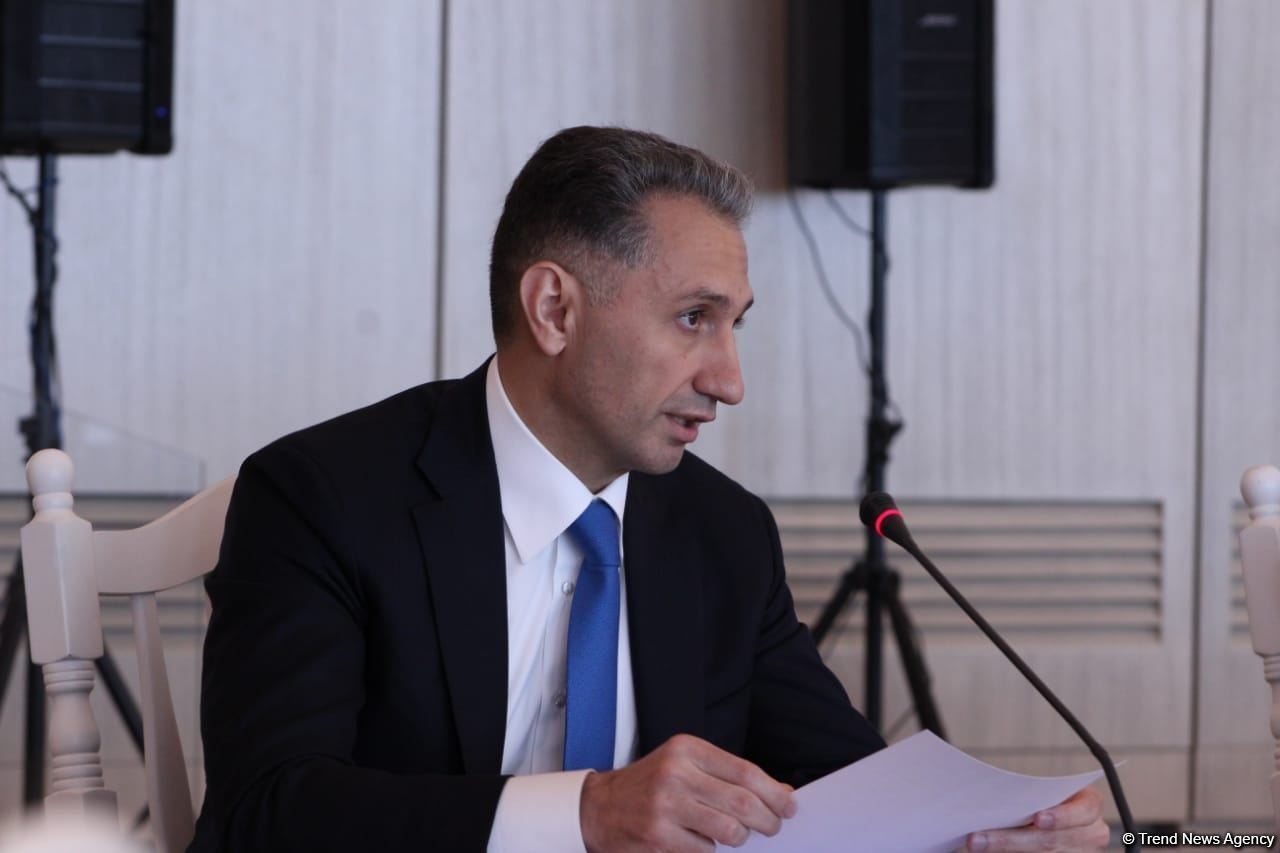BAKU, Azerbaijan, November 20. Azerbaijan has committed to reducing greenhouse gas emissions by 35 percent by the year 2030 as part of its efforts to create a sustainable ecosystem, said Rashad Nabiyev, Minister of Digital Development and Transport of Azerbaijan, at a high-level roundtable discussion on "Greening Urban Transport" at COP29, Trend reports.
"The Azerbaijani government has developed a Mobility Transformation Plan as part of this commitment. First and foremost, we aim to reduce the number of individual car trips in Baku by 40 percent.
We also plan to ensure that 90 percent of the population has access to public transportation. The government intends to create infrastructure for micromobility, including over 100 kilometers of bike and scooter lanes, to ensure that travel time within Baku to any point of interest does not exceed 20 minutes. This program includes more than 60 initiatives, such as improving metro, railway, and bus systems, expanding micromobility options, creating parking zones, dedicated bus lanes, and optimizing the bus network," he said.
The minister also highlighted the development of a digital twin for the city of Baku, which enhances decision-making processes through the use of digital data.
"Over 6 billion data points have been collected from bus routes, infrastructure, trips, metro stations, and the railway system, as well as data from the Waze mobile application and mobile subscribers. This approach is one of the most comprehensive digital solutions in the world.
Thanks to this digital innovation, dedicated bus lanes and optimized bus routes have been introduced, reducing traffic congestion and increasing the speed of buses in Baku from 18 to 22 kilometers per hour. The optimization has also improved bus frequency and made public transport more attractive to passengers. The optimized network is expected to reduce travel times during peak hours and expand access to public transportation," Nabiyev added.
To note, the 29th session of the Conference of the Parties to the UN Framework Convention on Climate Change (COP29), which will run until November 22, opened at the Baku Olympic Stadium on November 11. It is the largest event organized by Azerbaijan to date, and the first time in the region that it is being held in Azerbaijan.
Within COP29, the highest-level event - the summit of world leaders on climate action - was held on November 12–13.
The main expectation from COP29 is to agree on a fair and ambitious New Collective Quantitative Goal (NCQG) on climate finance. The COP29 Presidency has launched 14 initiatives that include linkages between climate action and the Sustainable Development Goals, including green energy corridors, green energy storage, harmony for climate resilience, clean hydrogen, methane reduction in organic waste, action on green digital technologies, and other topics.
In addition to being a top priority that creates the conditions for action, creating climate finance will also help fulfill the 1.5°C pledge by bringing everyone together.
The UN Framework Convention on Climate Change is an agreement signed at the Rio Earth Summit in June 1992 to prevent dangerous human interference in the climate system. The acronym COP (Conference of Parties) stands for “Conference of Parties” and is the highest legislative body overseeing the implementation of the Framework Convention on Climate Change.
A total of 198 countries are parties to the Convention. Unless otherwise decided by the parties, COP is held annually. The first COP event was held in March 1995 in Berlin, and its secretariat is located in Bonn.
Stay up-to-date with more news on Trend News Agency's WhatsApp channel







